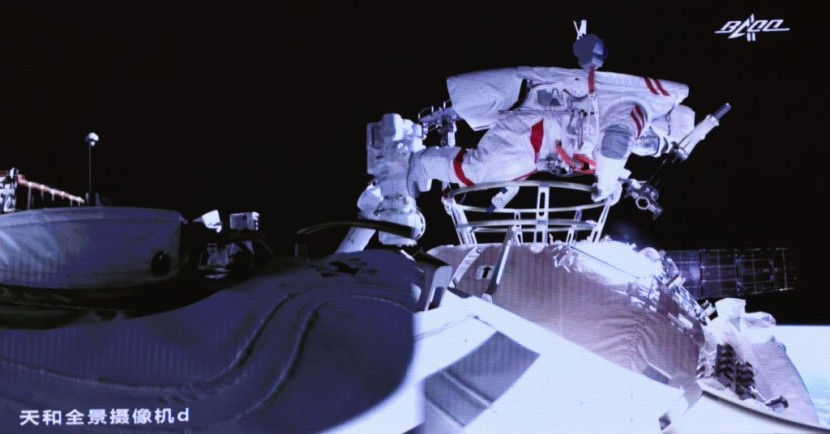
China's astronauts recently conducted a spacewalk amid the country's continued efforts to win against the West but are under fire for the alleged assault of top astronaut scientists a month before the events.
Widespread criticism of the state-owned China Aerospace and Technology Corporation (CASC) ensued after reports of a brutal attack on two prominent space scientists, one of which was an 85-year-old woman, by a member of the Communist Party.
Brutal Assault
On Saturday, news of the alleged assault, which was reportedly conducted in early June, came under wider public knowledge due to a report by the state-run media China News Weekly. Over the years, Chinese officials have emphasized the important role that scientific and technological innovation has in the country.
Some called the industry a "main battleground" for competing against the Western nation. Previously, even Chinese President Xi Jinping acknowledged that fact by praising China's top scientists as "national treasure" and calling them the "pride and the glory" of the nation.
Despite the support that scientists get from the country, the alleged fact that they can still be brutally assaulted by a lawmaker, who went unpunished for weeks, has brought out people's anger, disappointment, and shame, CNN reported.
The reports alleged that Zhang Tao, the party secretary and chairman of China Aerospace Investment Holdings, CASC's investment arm, assaulted two space scientists who refused his request to be recommended for membership of the International Academy of Astronautics. The organization is a Stockholm-based non-governmental organization.
Read Also: Joe Biden Misses Fourth of July Vaccine Goal, Vowed in March a "More Normal Fourth of July"
The victims were 55-year-old Wang Jinnian who suffered several broken ribs and soft tissue injuries all over his body and 85-year-old Wu Meirong who suffered a fractured spine. The two scientists were transported to the hospital and are still being confined after a month from the attack. However, the attacker, Zhang, continued to perform his work amid the suffering of the victims.
A week after the attack, the country successfully sent three astronauts to the new Tiangong station that was in orbit around the Earth. The space experts became the first crew of the station and will stay for three months. The duration marks China's longest crewed mission in history. Two of the three left the station for about seven hours to perform a spacewalk, The Guardian reported.
Spacewalk Outside the Station
Liu Boming, the first to leave the station, called the outside view "stunningly beautiful." The second astronaut, Tang Hongbo, followed three hours later. The tandem conducted one of the most important parts of their mission, testing the next-generation spacesuits, installing equipment to be used on future missions, and performing various technical tasks.
The Chinese space agency said the two astronauts were able to complete all of their designated tasks for the spacewalk. The crew is expected to conduct another spacewalk outside the station in the coming days.
The new spacesuit named Feitian, which means flying, was tested during the spacewalk. The suit allowed astronauts to spend up to eight hours in open space due to technological improvements to the design that doubled the time that astronauts can spend outside of the module, the South China Morning Post reported.
© 2026 HNGN, All rights reserved. Do not reproduce without permission.








